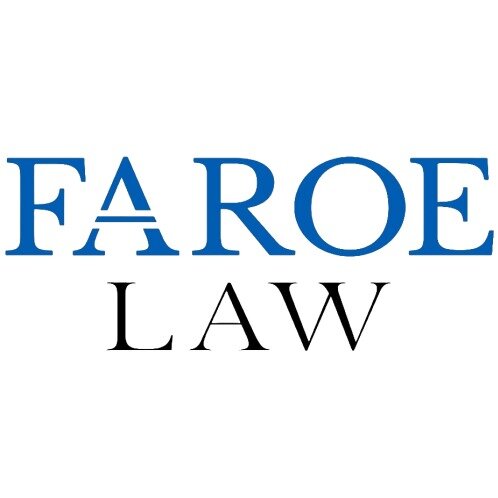Best Climate Change Law Lawyers in Faroe Islands
Share your needs with us, get contacted by law firms.
Free. Takes 2 min.
Or refine your search by selecting a city:
List of the best lawyers in Faroe Islands
About Climate Change Law in Faroe Islands
Climate Change Law in the Faroe Islands is an evolving area of environmental regulation that deals with the development, implementation, and enforcement of legal norms aimed at mitigating and adapting to the impacts of climate change. Although the Faroe Islands are a self-governing territory within the Kingdom of Denmark, many environmental laws are locally administered, allowing for tailored responses to the unique weather, geography, and economic structures of the islands. This body of law covers a range of topics, from greenhouse gas emissions reduction to renewable energy development and environmental protection. With climate change presenting both global and local challenges, the laws and policies in the Faroe Islands strive to protect natural resources, ensure sustainable development, and support the local population in adjusting to new environmental realities.
Why You May Need a Lawyer
Individuals, businesses, and organizations may require legal assistance with Climate Change Law in the Faroe Islands for a variety of reasons. Common situations include:
- Understanding compliance requirements for businesses subject to emissions regulations or energy efficiency standards
- Navigating the permitting process for renewable energy projects such as wind or hydroelectric power installations
- Challenging or responding to environmental impact assessments for new developments
- Dealing with disputes over land use, water rights, or fisheries in light of climate adaptation measures
- Ensuring that government or corporate policies align with both local and international climate obligations
- Securing or contesting government subsidies or incentives for climate-related projects
- Understanding the implications of European Union and Danish climate policies, as some regulations may apply locally
- Seeking compensation or remedy for property or livelihood impacts linked to climate change effects
A qualified lawyer can help you understand your rights, evaluate your legal options, and represent your interests in negotiations or proceedings related to climate change issues.
Local Laws Overview
The Faroe Islands have both legislative autonomy and obligations derived from their relationship with Denmark and, indirectly, the European Union. Key aspects of local Climate Change Law include:
- Climate Strategy and Action Plans: The Faroese government has developed climate strategies addressing emissions reductions, increased energy efficiency, and the promotion of renewable energy sources.
- Energy Law: There are specific requirements and incentives for the production and use of renewable energy, particularly wind and hydropower, which are important for reducing reliance on imported fossil fuels.
- Environmental Protection Act: This act sets the legal framework for the protection and management of the natural environment, addressing the impacts of climate change on terrestrial and marine ecosystems.
- Fisheries Regulation: Adaptation to climate change is increasingly influencing fisheries management, given the islands' economic reliance on the industry and changing ocean conditions.
- Building and Planning Regulations: Local rules may require developments to meet energy efficiency standards and consider climate resilience when granting permits.
- Compliance with International Agreements: Although the Faroe Islands are not a member of the EU, they incorporate relevant international climate commitments within their domestic legal system, particularly those undertaken by Denmark.
Frequently Asked Questions
What is Climate Change Law?
Climate Change Law refers to legislation and regulations that aim to reduce greenhouse gas emissions, promote environmental sustainability, and help communities adapt to changing climate conditions. It includes rules governing energy production, land use, emissions reporting, and environmental protection.
Are there specific climate change targets in the Faroe Islands?
Yes, the Faroese government has set specific targets for reducing emissions and increasing the share of renewable energy in electricity production. These goals are outlined in national strategy documents and influence local law and policy.
How are renewable energy projects regulated?
Renewable energy projects are subject to permits and must comply with environmental and energy laws. These regulations ensure that projects are sustainably developed, protecting both the environment and local communities.
What obligations do businesses have under Climate Change Law?
Businesses may need to reduce their greenhouse gas emissions, adhere to energy efficiency requirements, report emissions data, and obtain necessary permits or approvals for activities that impact the environment.
Can climate change laws affect property rights?
Yes, new regulations or climate adaptation projects may place restrictions on land use or require property owners to take specific actions, such as upgrading energy systems or following stricter building codes.
Are there funding or incentives for renewable energy?
The Faroese government offers certain incentives and support schemes for renewable energy projects and for businesses or individuals investing in energy efficiency improvements.
Does international law affect climate regulations in the Faroe Islands?
While the Faroe Islands are not EU members, they align with certain international and Danish climate commitments, which may be incorporated into local law and policy.
What should I do if I believe a development is harming the environment?
You can report your concerns to the relevant governmental authority, and may seek legal advice to determine if an environmental impact assessment or compliance review is warranted.
Are there penalties for non-compliance with climate regulations?
Yes, violations of climate and environmental laws can result in fines, project delays, or other enforcement actions by regulatory authorities.
How can I participate in climate policy development?
Public consultation processes are often held for new laws, policies, or projects. You may also work with local NGOs or community groups to raise climate issues.
Additional Resources
If you are seeking further information or support related to Climate Change Law in the Faroe Islands, the following organizations and governmental bodies may be helpful:
- Umhvørvisstovan (Environment Agency of the Faroe Islands): Provides guidance on environmental regulation, permits, and compliance.
- Landsstýrið (The Faroese Government): Publishes official strategies, legislation, and updates on climate and energy policy.
- SEV (Faroese electricity company): Works on renewable energy projects and can give technical guidance for power and water-related developments.
- Local law firms: Many have experience in environmental and administrative law.
- NGOs such as Føroya Náttúru- og Umhvørvisfelag: Raise environmental awareness and support public participation.
Next Steps
If you need legal assistance regarding Climate Change Law in the Faroe Islands, consider the following actions:
- Identify the specific legal issue or project that may involve climate change law, such as a planned development or regulatory challenge.
- Gather relevant documents, including any government communications, permits, or notices you have received.
- Contact a lawyer or legal advisor with experience in environmental law and regulations in the Faroe Islands.
- Prepare a list of questions or concerns to discuss during your initial consultation.
- Use resources from local government bodies or NGOs to further educate yourself about your legal rights and obligations.
- Stay informed about changes to climate law and policy that may impact your activities or interests.
Professional legal advice can help navigate the complexities of climate-related regulations and ensure that your interests are protected.
Lawzana helps you find the best lawyers and law firms in Faroe Islands through a curated and pre-screened list of qualified legal professionals. Our platform offers rankings and detailed profiles of attorneys and law firms, allowing you to compare based on practice areas, including Climate Change Law, experience, and client feedback.
Each profile includes a description of the firm's areas of practice, client reviews, team members and partners, year of establishment, spoken languages, office locations, contact information, social media presence, and any published articles or resources. Most firms on our platform speak English and are experienced in both local and international legal matters.
Get a quote from top-rated law firms in Faroe Islands — quickly, securely, and without unnecessary hassle.
Disclaimer:
The information provided on this page is for general informational purposes only and does not constitute legal advice. While we strive to ensure the accuracy and relevance of the content, legal information may change over time, and interpretations of the law can vary. You should always consult with a qualified legal professional for advice specific to your situation.
We disclaim all liability for actions taken or not taken based on the content of this page. If you believe any information is incorrect or outdated, please contact us, and we will review and update it where appropriate.
Browse climate change law law firms by city in Faroe Islands
Refine your search by selecting a city.













